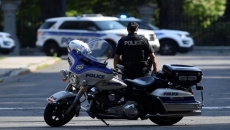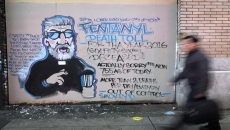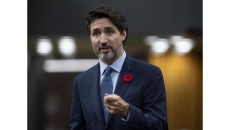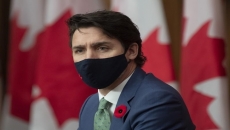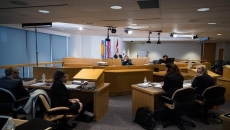The judge overseeing the van attack trial has granted a request to seal all recordings of interviews the accused had with an American psychiatrist who had warned the videos could incite more violence if made public.
While the audio and video of Alek Minassian's interviews with Dr. Alexander Westphal will not be released publicly, Justice Anne Molloy has allowed journalists to view the recordings when they're presented in court.
Westphal had said he would not testify if the judge refused to seal the recordings of his interviews with Minassian, who has pleaded not guilty to 10 counts of first-degree murder and 16 counts of attempted murder.
Molloy says she wasn't happy to give into the demands of the American doctor, but notes that without his testimony Minassian would not get a fair trial.
A group of media organizations including The Canadian Press fought the application, arguing courts are inherently open and proceedings should not be held in secret.
The defence argues Minassian should be found not criminally responsible for his actions on April 23, 2018, due to autism spectrum disorder.
Minassian's state of mind will be the sole issue at trial.
His lawyer, Boris Bytensky, told court that Westphal will be the only expert to testify that Minassian is not criminally responsible for his actions that day.
Molloy, who is presiding over the case without a jury, said what complicated matters is that Westphal is an American and she has no way to compel him to testify in a Canadian court.
The federal government could intervene but Molloy said a cross-border process could take years.
"If he was here, there would be no problem. I would not for a moment tolerate it," the judge said. "That doctor would be under arrest before he could blink."
The judge was left to choose between Minassian's rights to a fair trial versus the freedom of the press, which is enshrined in the Canadian Charter of Rights and Freedoms.
"Dr. Westphal has refused to participate knowing that there’s nothing I can about it if he does not, and knowing that he is all there is in terms of a defence for Mr. Minassian," Molloy said.
Bytensky told court his client was inspired by Elliot Rodger, an American who went on a rampage in Isla Vista, Calif., in May 2014, killing six people and injuring 14 others before killing himself.
Rodger's "manifesto" and his video before the murders focused on his hatred towards women and has found an audience in the bowels of the internet where he is treated as the forefather of so-called "incels," men who are involuntarily celibate.
Bytensky told court he wanted the videos sealed because it would give in to Minassian's desire for notoriety. He said his client was heavily influenced and inspired by Rodger's "manifesto" and video.
The lawyer also said every single expert will testify at trial that Minassian was inspired to kill people, in part, for notoriety.
Allowing the videos to be released to the public would give Minassian exactly what he wants, argued Bytensky.

